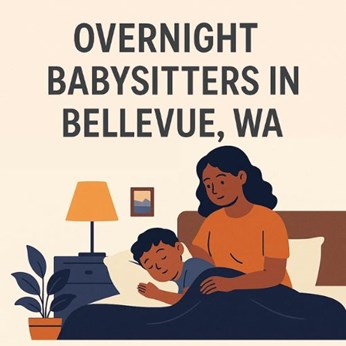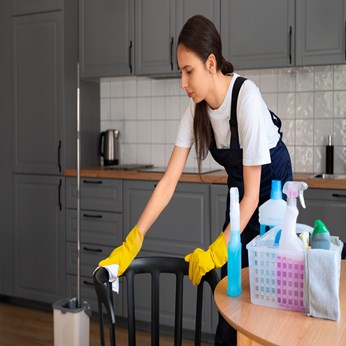Know About Urinary Incontinence In Men
Talking of elders and their care brings to mind one of the problems faced by elder men and women; urinary incontinence that is more common in old men and women. Women are more prone to it because of anatomical differences in the pelvic region and the changes induced by pregnancy and childbirth.
Causes of urinary incontinence in men:
It is significant to understand that muscles and nerves work together to hold the urine in the bladder and release it at the right time. The damage or diseased condition of the nerves in the brain could send wrong signals to the bladder and the sphincter.
Nerve damage occurs in those that have diabetes, stroke, Parkinson disease and multiple sclerosis that lead to bladder control and emptying problems. One more condition that could cause urinary incontinence by nerve problems is overactive bladder.
Those with overactive bladder could experience 2 to 3 of the following symptoms. It could cause urination 8 or more times in a day or 2 to 3 times during the night. The next symptom could be urinary urgency where there is a sudden strong need to urinate immediately and thirdly there could be urine leakage that follows a sudden, strong urge to urinate.
Prostrate problems could also lead to urinary incontinence. The enlargement of the prostate gland that surrounds the urethra just below the bladder could squeeze the urethra and affect the flow of the urinary stream. It is more common in men as they age with about 90% of the men in their 70’s and 80’s experiencing the symptoms.
The most common symptoms are changes or problems with urination, such as a hesitant, interrupted, weak stream; urgency and leaking or dribbling; more frequent urination, especially at night; and urge incontinence.
The surgical removal of the entire prostate gland or radical prostatectomy due to prostate cancer could lead to erection problem or urinary incontinence or UI. Again it is found that external beam radiation another treatment for prostate cancer could also lead to temporary or permanent bladder problems.

Diagnosis of urinary incontinence:
You need to fix up an appointment with a specialist and answer questions put by him. You would have to tell him the amount of fluid, alcohol and caffeine you take every day in addition to prescription and nonprescription drugs taken by you. You should also give details of your general medical history and other details about your incontinence problem.
You may be asked to maintain a voiding diary where you record fluid intakes, visits to the bathroom plus any episodes of leakage that would aid the specialist in future investigations.
Next a physical examination may be carried on to check prostate enlargement or nerve damage. These tests would give a general idea about the size and condition of the gland as well tingling sensations or feelings of numbness and changes in sensation in the nerves as well as muscle tone, and reflexes. Nerve damage is best checked by EEG and EMG.
The EEG that is performed by taping wires to the forehead checks brain dysfunction, while the EMG is performed by taping the lower abdomen to measure nerve activity in muscles and muscular activity that may be related to loss of bladder control. An ultrasound would also prove useful in getting images of the bladder and kidney.
Urodynamic testing may be done to assess the bladder's ability to store urine and empty steadily and completely, and your sphincter control mechanism. It can also show whether the bladder is having abnormal contractions that cause leakage. This test can help identify limited bladder capacity, bladder over-activity or under-activity, weak sphincter muscles, or urinary obstruction.
I am sure this article will be useful in knowing about urinary incontinence in men
Take the next step toward your goals
Share your requirement and find the best care providers in your area
-
Looking for a caretaker’s job? Build your profile and get in touch with families in your vicinity.
-
Discover nannies, babysitters, cooks, housekeepers, pet sitters, and elder care under one roof.
-
Get all the support you need to run a successful care center.
-
Search for appropriate centers near you depending on your needs.
Care Corner Insights: Blog Library

Overnight Babysitters in Bellevue, WA for Business-Travelling NRI Parents: Safety & Policies
For many NRI parents living in Bellevue, WA, frequent business trips are a reality. While traveling, one of the biggest concerns is ensuring your children are safe, cared for, and emotionally supported during overnight stays. Overnight babysitters ca

Indian Home-Style Cooks in Queens, NY: Tiffin-Style Weekly Meal Prep from Your Kitchen
Queens, NY, is home to one of the most diverse food cultures in the country, and Indian cuisine holds a special place among families looking for authentic, comforting meals. While restaurant takeout is convenient, nothing compares to the taste and nu

Baby Sleep Problems: What is Sleep Regression and How to Handle It
If you’re a parent, you know that baby sleep is one of the greatest mysteries of life. One day your little one is snoozing like an angel, and the next day they’re suddenly waking up every hour, fussing, or refusing to nap. Before you panic, there’s a

What is Validation Therapy? A New Approach to Dementia Care
Caring for loved ones with dementia is one of the most emotionally challenging journeys a family can face. Traditional methods often focus on correcting memory lapses or redirecting confused thoughts—but that can sometimes lead to frustration, stress

What is a Part-Time Nanny and Do You Need One
Parenting is a beautiful journey, but let’s be honest—it can also be exhausting! Between work deadlines, household chores, and family responsibilities, sometimes there just aren’t enough hours in a day. That’s where part-time nannies step in, offerin

Part-Time Housekeeper Hiring in Alpharetta, GA: Weekly Schedules, Pricing, and Must-Do Tasks
Keeping a home spotless while balancing work, family, and personal commitments can be overwhelming. For families and professionals in Alpharetta, GA, hiring a part-time housekeeper is one of the most practical solutions. Whether you need help once a

Affordable Daycares in Irving, TX with Indian Menu Options: Parent Reviews & Enrollment Tips
Finding the right daycare for your little one is never an easy decision—especially if you’re looking for one that fits your budget and offers familiar food options like an Indian-inspired menu. For parents in Irving, TX, the good news is that several

Can Babies Sleep on Their Side? Tips for Safe Baby Sleep
When it comes to newborns, every parent worries about the smallest details—how they sleep, what they wear, even which way they turn their tiny heads. One common question that pops up is: “Can babies sleep on their side?” The short answer? Not recom

8 Benefits of Hiring a House Cleaner for Your Home
Let’s be honest — keeping a home sparkling clean while juggling work, family, and daily life can feel like a full-time job in itself. That’s where professional house cleaners step in, turning the chaos into calm. If you’ve been debating whether to br

How to Care for a Gassy Baby? What’s Normal and what’s not – Expert Advice
If you’re a new parent navigating the world of burps, bubbles, and baby fussiness—welcome to the club! Gas in babies is incredibly common, especially in the first few months. But how do you know what’s normal and when it’s time to call in expert help